Publication type: Journal Articles
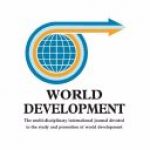
Making Meat and Milk from Plants: A Review of Plant-Based Food for Human and Planetary Health
Abstract Interest in alternative protein sources to substitute for animal source protein-rich foods has emerged alongside calls for sustainable food systems to meet protein demands as the global population grows towards a projected 9.8 billion people by 2050. Food companies are capitalizing on sustainable diet...
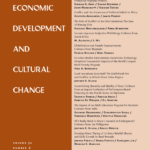
Alcohol Ban and Crime: The ABC’s of the Bihar Prohibition
Abstract We study the relationship between alcohol consumption and crime, following an alcohol prohibition in Bihar in 2016. Using a difference-in-differences approach, we explore the differential effects of alcohol on different crime types. We find that the prohibition led to a 0.22 standard deviation point...
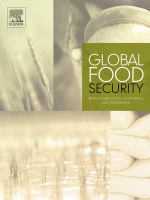
Can We Agree on a Food Loss and Waste Definition? An Assessment of Definitional Elements for a Globally Applicable Framework
Abstract Recent strategies for achieving sustainable food systems have called for reducing food loss and waste (FLW), most notably Sustainable Development Goal (SDG) target 12.3. This review aims to compare FLW definitions that are relevant to SDG target 12.3 and opportunities to harmonize the FLW definition. Using the FAO...
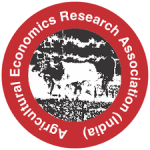
Nutrition-Sensitive Food Systems and Biofortified Crops
Abstract The realization that economic growth is a necessary but insufficient condition for improving the nutritional status has led to a paradigm shift in addressing malnutrition through nutrition-sensitive development. Biofortification is one such nutrition-sensitive food system intervention designed to supply crucial micronutrients through staple diets...

In-Mouth, Self-Disintegrating Milk Protein Puffs-I: Process Development
Abstract This study elucidated the reactive role of the supercritical fluid extrusion (SCFX) process along with calcium chelation by added sodium hexametaphosphate (SHMP) in altering the physicochemical properties of milk protein concentrate (MPC) with added sucrose (MPC-S) to make expanded extrudates of defined microstructure that...
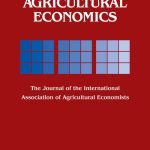
Food Systems Transformation in Asia – A Brief Economic History
Abstract Asia’s food systems have undergone rapid economic and socio-cultural transformations in the past 60 years. During the period, almost all the countries in the region eradicated famines and achieved food self-sufficiency and heterogeneous levels of poverty reduction. Food system transformation in Asian countries has...

Soils and Human Health: Communication Between Geo-Environmental, Socio-Demographic and Lifestyle of Rural Tribal Women of Jharkhand, India and Their Mineral Nutrition
Abstract A holistic view on possible determinants of human health within a poor subsistence farming community is important to addressing pressing issues surrounding hidden hunger. This survey study assesses the mineral nutrition of women in rural tribal communities of Jharkhand, India, and its possible connection...
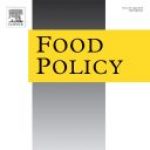
Aggregation Models and Small Farm Commercialization – A Scoping Review of the Global Literature
Abstract Aggregation models where small farms jointly access credit, inputs, information, and product markets are not new to global agricultural systems. For over a century, agricultural cooperatives worldwide have tried rectifying small farm disadvantages in market access. In the last two decades, newer aggregation models...

Food Loss of Perishable Produce from Farm to Retail: Evidence from Tomato Supply Chains in South India
Abstract Background Reducing food loss and waste (FLW) may narrow gaps between fruit and vegetable production and recommended intake. However, FLW estimates are inconsistent due to varying estimation methods. Objectives Using multiple estimation approaches, we examined the extent and determinants of FLW along tomato supply...

Hunger and Environmental Goals for Asia: Synergies and Trade-offs Among the SDGs
Abstract Rapid progress in hunger reduction in Asia has come at the cost of environmental degradation, while pursuing environmental conservation goals risk slowing further progress on hunger. Operationalizing the Sustainable Development Goals (SDGs) shows us the complexity of achieving multiple societal goals simultaneously. The lack of coordination across...

